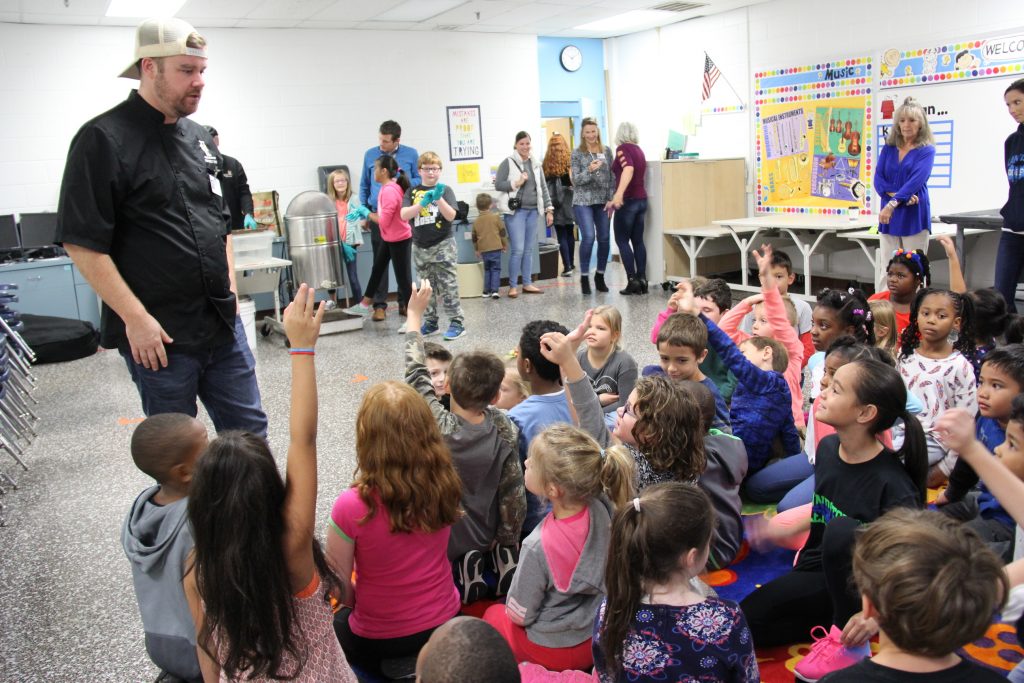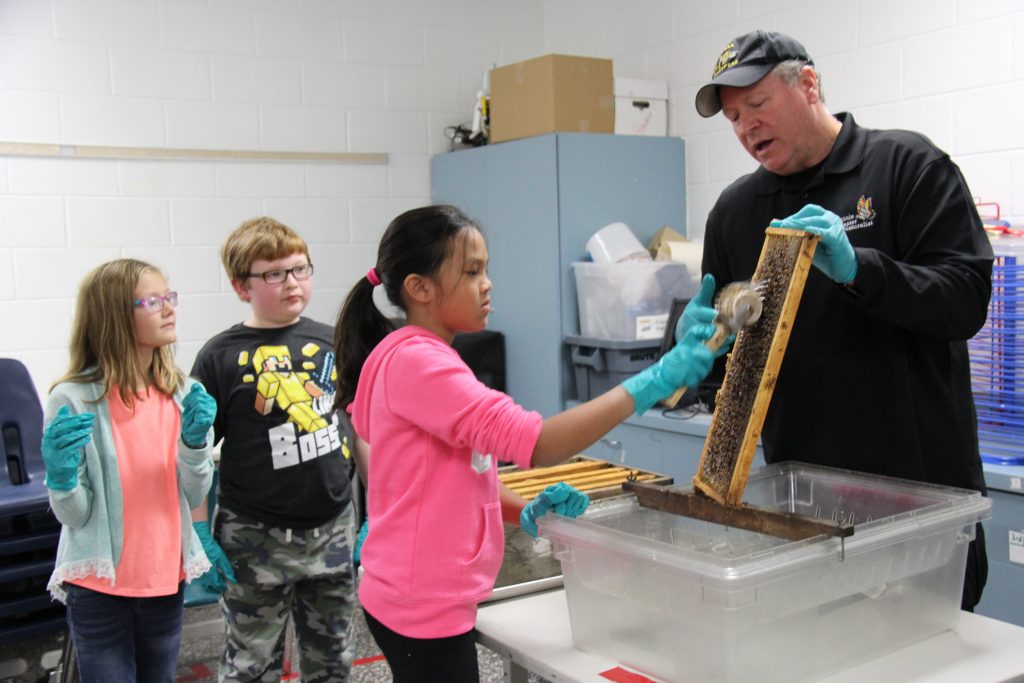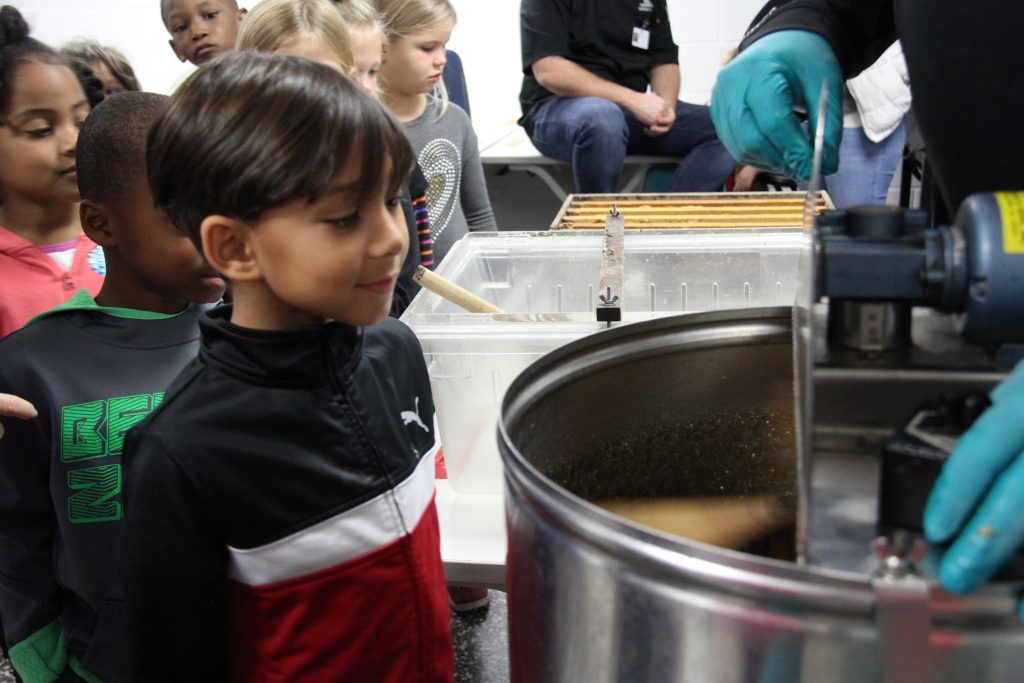“What foods do you think we can make with honey?” the school division’s recently-hired chef Kip Poole asked a roomful of Landstown Elementary School students.
“Honey bread!” exclaimed one second-grader.
“Honey chicken,” another student chimed in.
“Absolutely,” Poole replied. ‘What if we made a little bit of rice or pasta and added honey chicken on top? Do you think that would be good?”
“Yes!” the students replied in unison.
“Anything that you think needs a little sweetener, you can add honey to it instead of sugar and make it a bit healthier,” Poole said. “We are going to be making some things in the kitchen which I’m excited about and we’ll give out a few samples as soon as we do.”
Poole teamed up with Norfolk Beekeepers Association president Frank Walker at Landstown Elementary School Oct. 26 to get students’ ideas on how honey can be used in foods and to show them how honey is extracted.
“How many of you knew that you have your own beehive at Landstown Elementary?” Walker asked as students eagerly raised their hands.
“Outstanding!” Walker replied as he began describing the video behind him showing how a beekeeper outfitted in his full suit taking frames out of a bee box – the same one that is located under a giant Oak tree at the front of the school.
“You don’t have to have a hive in your backyard to be a beekeeper,” Walker shared. “A beekeeper is someone who knows the importance of honey bees and then promotes and protects them.”
After the video, students lined up to see three designated fifth-grade assistants rolling an uncapping tool on the frames and to get a sneak peek inside the extractor tank filled with honey.
For students these were two exciting presentations since, thanks to their school’s gifted resource teacher Kim Bielmann, classes have been researching how vanishing pollinators are important contributors to the world’s food supply.
Bielmann and other gifted cluster teachers started the project four years ago as a problem-based learning opportunity. Second graders study hummingbirds. Third graders study bats. Fourth graders study monarch butterflies and fifth graders study honeybees.
That project has since grown into Landstown not only embracing sustainability, but in students taking action to help the world – even creating an outdoor learning lab thanks to funding from the Virginia Beach Education Foundation.
“We gave them the authentic task, they researched it and came up with ideas on how they could positively impact the issue,” Bielmann states. “One of the parents who was an architect came in to talk to them about the design and from there we put them in interest groups and they made choices about where it was going to be, the budget and we even took them to Home Depot to learn about products.”
The following year, Bielmann secured another grant – this time for a bee box at the school, an idea suggested by one of the students. Students painted the box and Walker, who also assists with Kellam High School’s Pollen-Nation beekeeping club, provided the colony.
This summer marked the first full year of Landstown’s beehive so Walker and Poole, who is leading the division’s scratch cooking program, teamed up for the honey extraction presentation and to talk with students about how their work to help bees can make a difference in the foods they eat.
“If you just give kids space to explore these things, it’s amazing what they can do on their own,” Bielmann said. “They are excited about it, they take a lot of ownership and they think of this as their legacy.”
Fifth-grader Lea Iguban agrees that their work at Landstown is going to help the future.
“We don’t want bees to be extinct because they are pollinators and that’s how we get apples, oranges, bananas and all type of fruits and vegetables. If bees are extinct we will no longer have those types of foods.”



